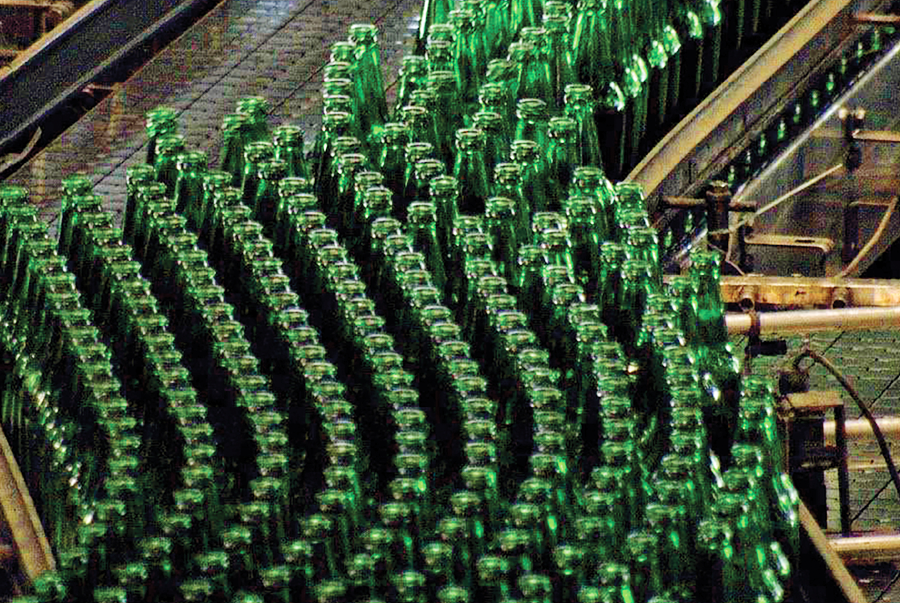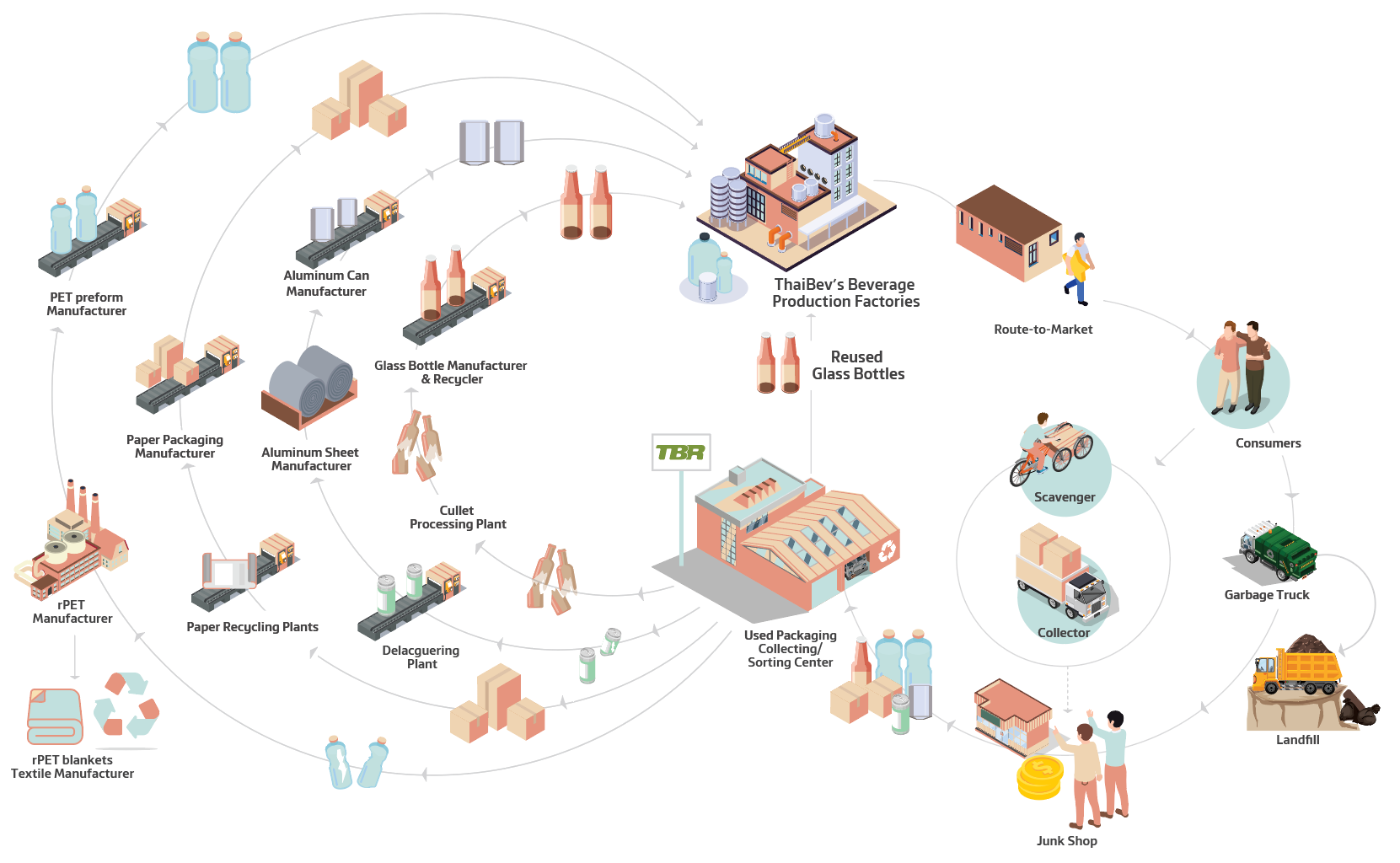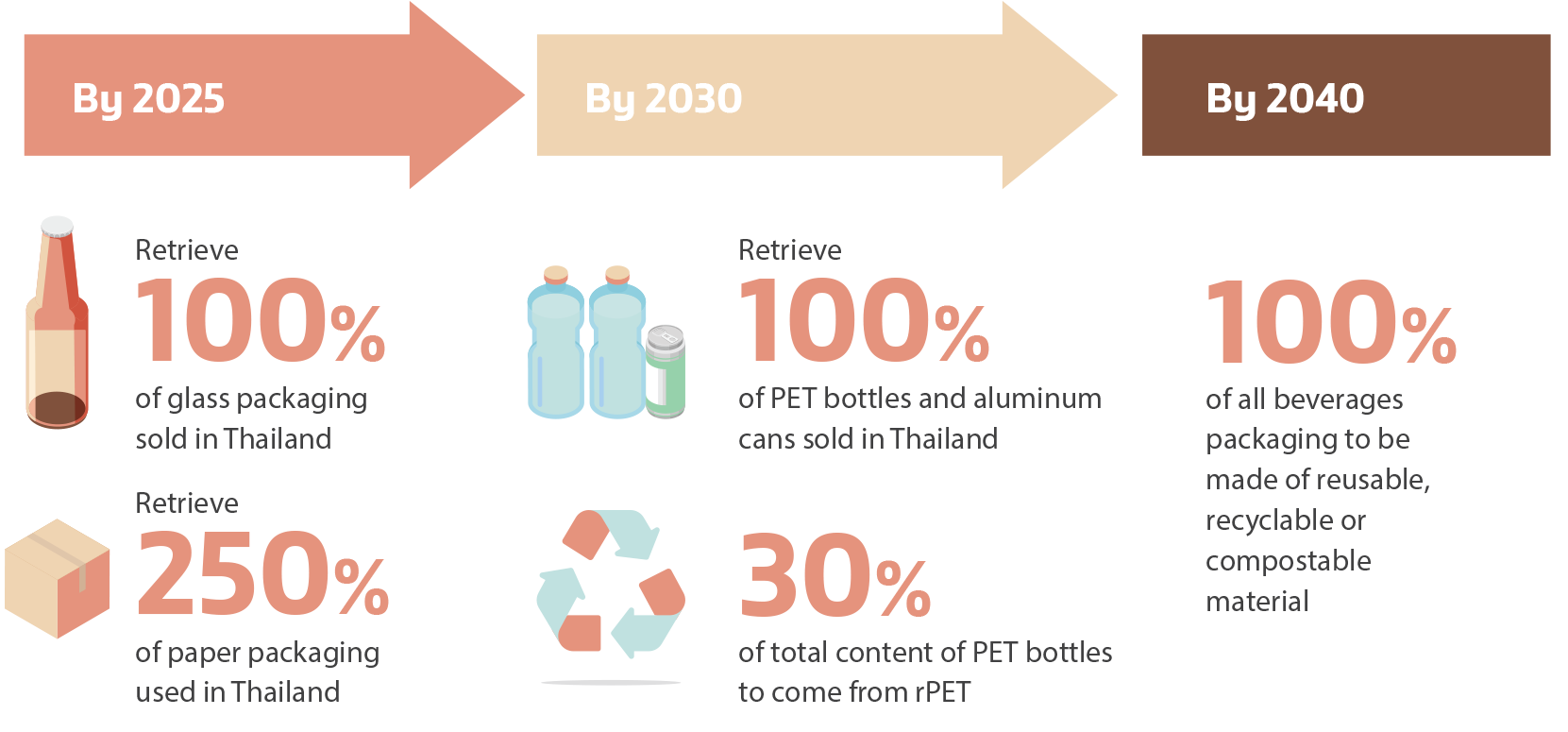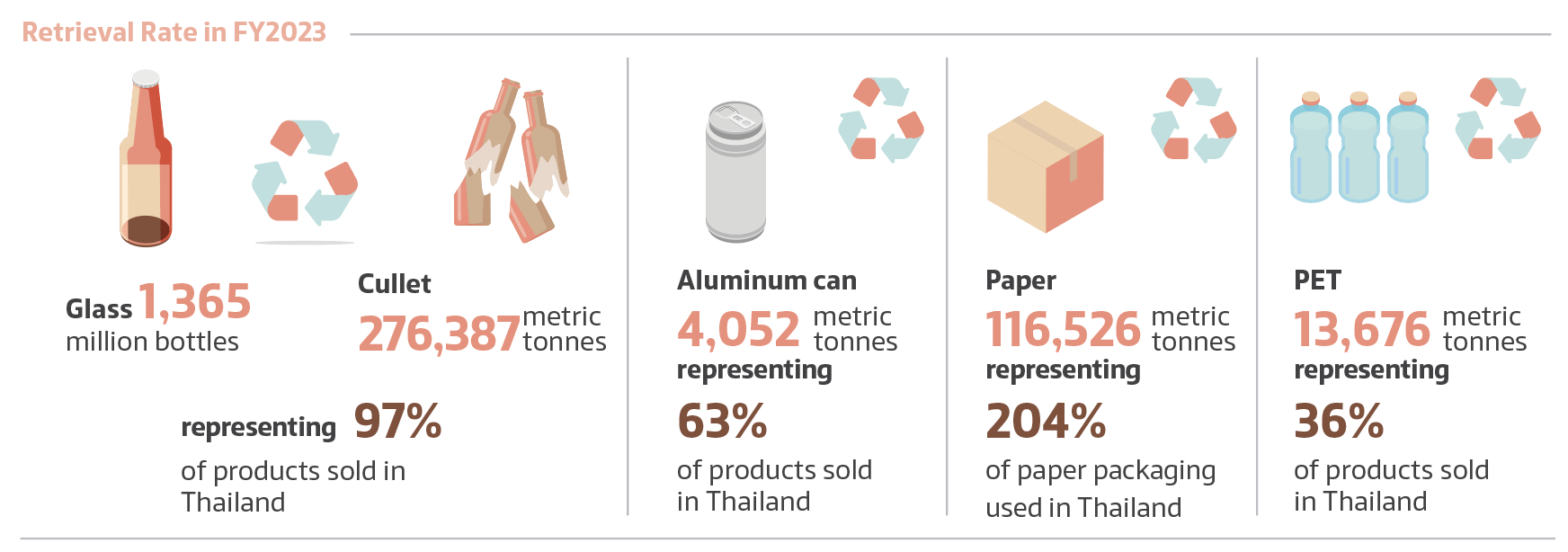

PACKAGING & CIRCULAR ECONOMY






| Management Level | Type of Incentive | Incentivized KPIs | Detail |
| Chief Supply Chain Management and Executive Officers | Monetary | Waste management and circular economy | ThaiBev sets Corporate KPIs that reflect our CEO, executive, and employee compensation. ThaiBev’s Corporate KPIs relating to Waste Management and circular economy consisting of retrieval target for all main packaging. We define and categorize the criteria for achieving Corporate KPIs into 5-level. Compensation and bonuses will be allocated to relevant executives and employees, with related targets to
|
| Business Unit Managers | Monetary | Waste management and circular economy | ThaiBev sets Corporate KPIs that reflect our CEO, executive, and employee compensation. ThaiBev’s Corporate KPIs relating to Waste Management and circular economy consisting of retrieval target for all main packaging. We define and categorize the criteria for achieving Corporate KPIs into 5-level. Compensation and bonuses will be allocated to relevant executives and employees, with related targets to
|
